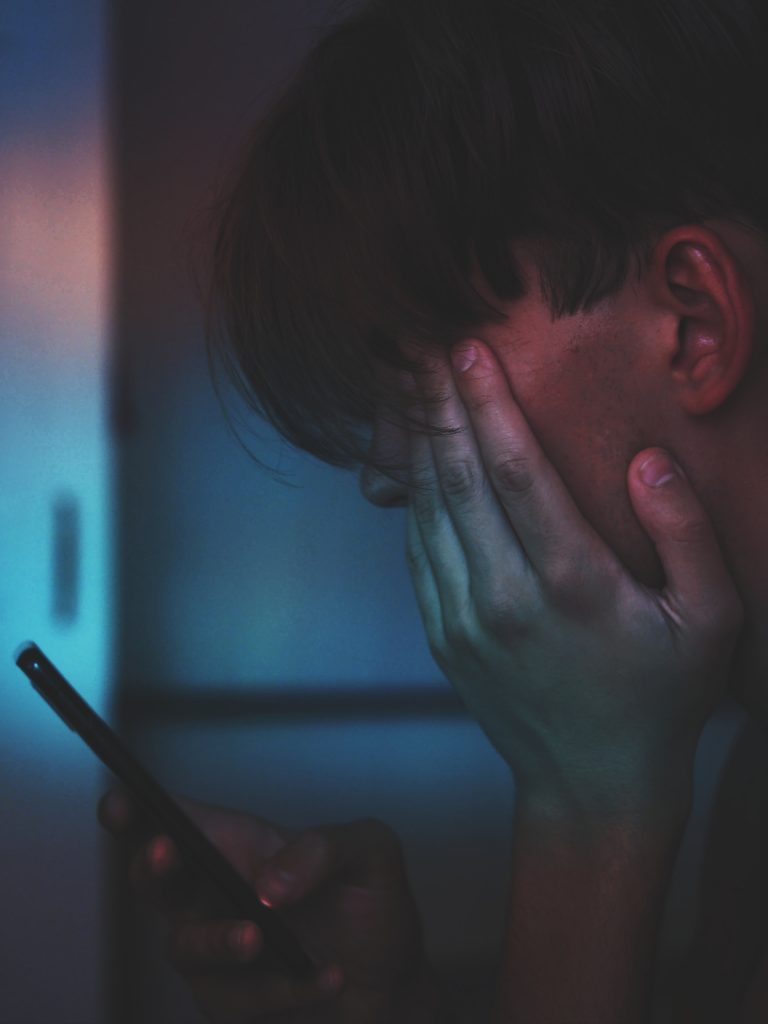8 Signs of Chronic Loneliness

Disclaimer: The information in this video is not intended nor implied to be a substitute for professional medical advice, diagnosis or treatment. All content, including text, graphics, images, and information, contained in this video is for general information purposes only and does not replace a consultation with your own doctor/health professional
Have you ever felt alone — even among the company of your friends and family?
Loneliness can be a tough battle to face, especially if the voice inside your head constantly discourages you.
Are you a friend to yourself?
Here are eight signs of chronic loneliness.
1) Insomnia
Do you have trouble getting to bed at a reasonable time at night?
According to research conducted by the Sleep Research Society, the more lonely you are, the more likely you’ll experience insomnia and shorter sleep durations. People who feel lonely also tend to be light sleepers or wake up periodically throughout the night. While this study represented older adults, anyone who faces social isolation may have bouts of sleeplessness as well.
2) Anxiety
Do you struggle with anxious thoughts every day?
Lonely people may find it hard to access a basic support system, causing them to ruminate in solitude. Since you don’t have a proper avenue to talk things through, this can lead to thoughts of helplessness and despair, which can worsen the anxious thoughts. Instead of ruminating about the negative side of things, try to practice positive self-talk instead.
3) Stuck at Home
Do you rarely leave your house — or even your room?
A lonely person’s safe space is their bedroom, and they have no problem staying there for an entire day. As long as their basic needs are met, cozying up under their blanket and watching a good show sounds like a dream. However, if that’s all they do for prolonged periods, this can lead to them feeling empty and negative. Taking a walk every once in a while can help ground you to the present and feel less unfulfilled.
4) Social Situations Scare You
Do you hate the idea of going out to large gatherings?
Lonely people tend to struggle with mental health issues like anxiety or depression. This makes social situations naturally difficult, even exhausting, for them to handle. Maybe a bad experience has scared them away from interacting with people again. Or a negative self-image prevents them from reaching out. Whatever the case, these negative thoughts shouldn’t overcome them, and they shouldn’t be afraid of interactions not working out. If you’re lonely and hesitant to reach out, recognize that you’ll be happy that you tried and come out stronger than you did.
5) Alone time is not fun anymore
Did you use to enjoy having the freedom during the weekends – until you didn’t?
Alone time can be relaxing time spent to reward yourself. It can clear your headspace and get you back to the groove of things. But if a lonely person experiences too much alone time, this can have consequences as well. Having too much alone time can make you irritable and agitated, which leads to suffering instead of tranquility. For lonely people, it’s a good idea to talk to a counselor or doctor to help you make light of your situation.
6) You Prefer Materials over People
Does buying new things give you an energy boost?
Buying new things can feel thrilling, especially if it’s on sale. But eventually, this temporary high will fade and you’ll return to feeling lonely again. The happiness of buying things is short-lived compared to the positive, sustainable relationships and experiences we share with people. Instead of buying things online impulsively, consider using that money on experiences with your loved ones instead.
7) Depression
Do you feel like you can’t be bothered to do anything?
Loneliness and depression oftentimes go hand-in-hand. In fact, research from American Psychological Association shows that loneliness is a specific risk factor for depression. But their relation doesn’t apply to all cases; you can rise above it. Finding an outlet, staying connected, staying active, and planning for your life are some actions you can take to help heal you from bouts of depression.
8) Gaining or Losing Weight
Have you been splurging on burgers and pints of ice cream? Or have you not been eating at all?
Loneliness tends to drain your energy and motivation, making it extremely hard for you to go outside and burn excess calories. For others, loneliness can also bring them in their head a lot, preventing them from eating as much as they used to.
Whichever the case, a drastic shift in diet can lead to other conditions as well, like high blood pressure, nutrition deficiency, and unhealthy cholesterol levels. Maintaining a healthy diet and exercise regimen are ways to help give you an energy boost to get you through the day.
Closing Thoughts
Do you show any signs of chronic loneliness? Or know anyone who does?
If you do, don’t be afraid to consult a mental health professional to guide you. Even if you feel lonely right now, we hope that you give yourself a chance. Know that there’s a world of people like you out there rooting for you to succeed. Count on it!
That’s all for now, Psych2Goers!
References
- Johnson, R. September 21, 2020. Loneliness and Social Isolation Linked to Poor Sleep Quality in Older Adults. Retrieved at https://www.psychiatryadvisor.com/home/topics/sleep-wake-disorders/loneliness-and-social-isolation-linked-to-poor-sleep-quality-in-older-adults/
- Catherine. Jun 9, 2019. 7 Signs You May Be Lonely. Retrieved at https://www.youtube.com/watch?v=_VcHuQt3fYY&ab_channel=Psych2Go
- Vann, M. 9 Secret Signs of Loneliness. 9 Secret Signs of Loneliness Retrieved at https://www.everydayhealth.com/depression-pictures/are-you-lonelier-than-you-realize.aspx
- Rayski, A. March 4, 2008. Can Depression Be Prevented? Retrieved at https://www.everydayhealth.com/depression/preventing/preventing-depression.aspx



Responses